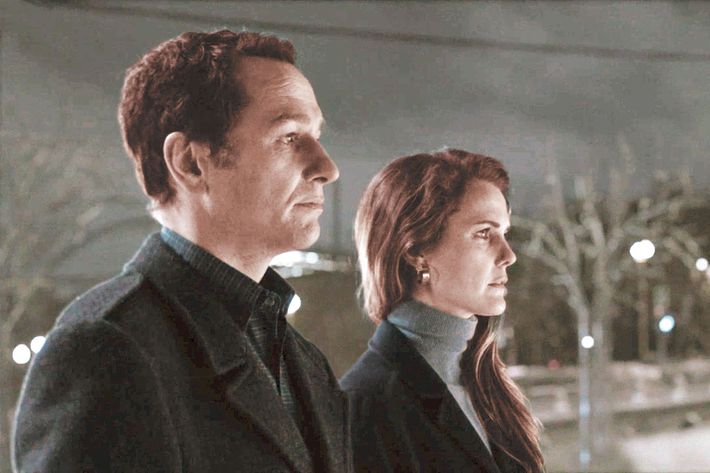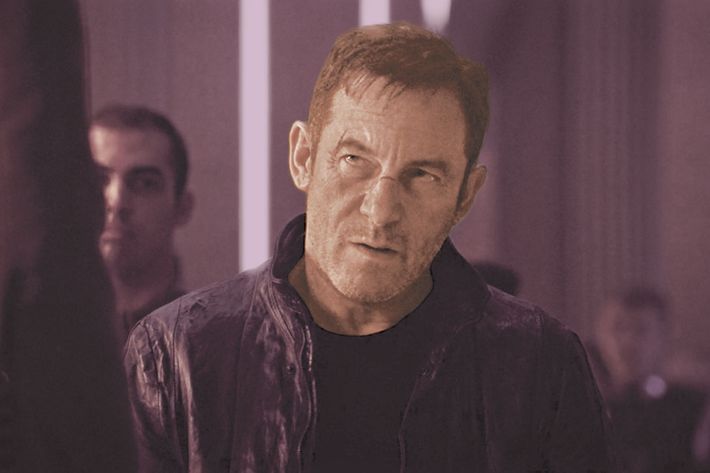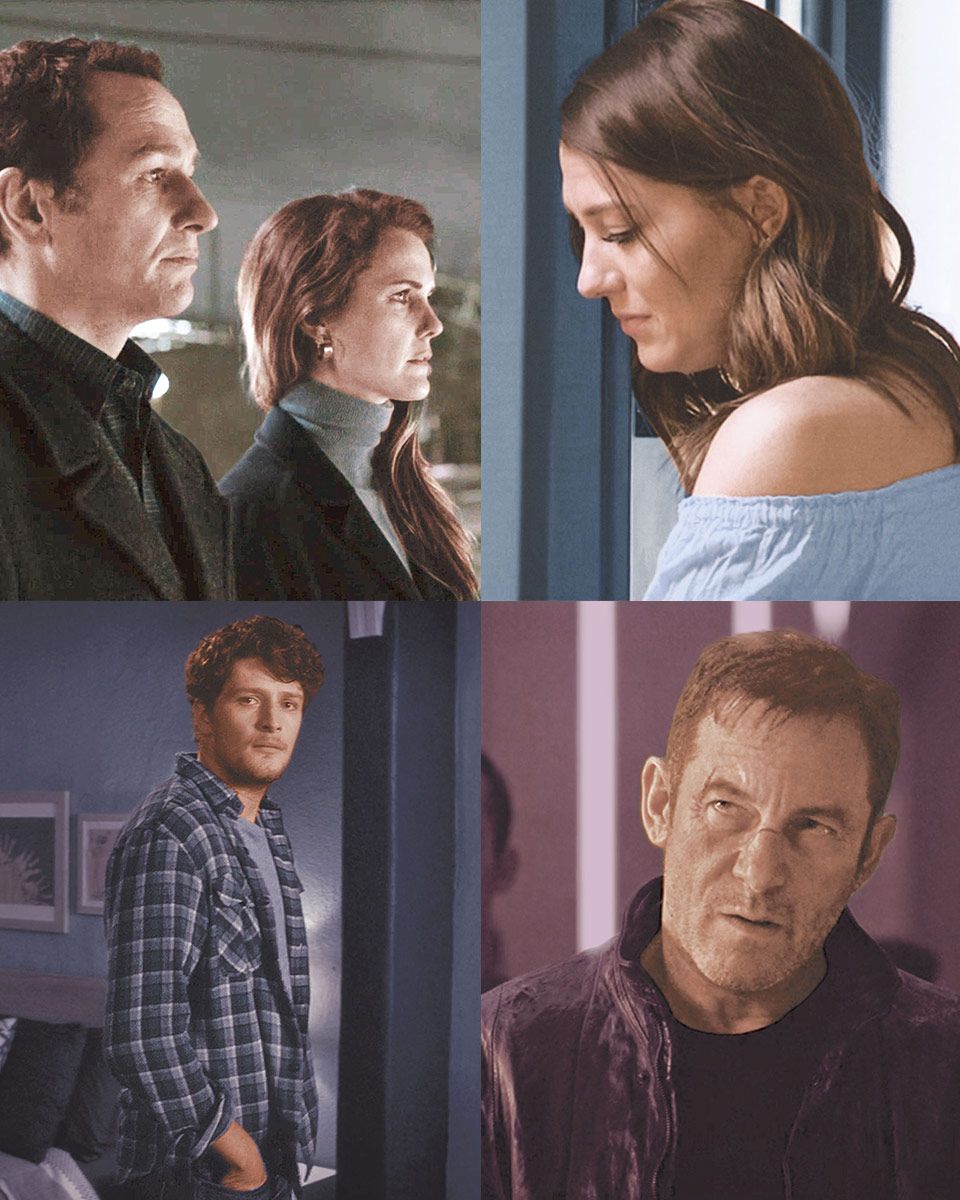The 2018 Emmy race has begun, and Vulture will take a close look at the contenders until voting closes on June 25.
There are no secrets anymore. At least, that’s what Westworld creators Jonathan Nolan and Lisa Joy seemed to admit earlier this year when they announced, during a Reddit AMA right before the launch of season two on HBO, that they were considering releasing a 25-minute video giving away every upcoming plot twist ahead of time. “That way the members of the community here who want the season spoiled for them can watch ahead, and then protect the rest of the community, and help to distinguish between what’s ‘theory’ and what’s spoiler,” they explained. The video itself turned out to be an elaborate prank, with Westworld’s Evan Rachel Wood Rickrolling fans by singing “Never Gonna Give You Up” while co-star Angela Sarafyan accompanied her on saloon piano.
The circumstances leading to that video were no joke, though. Plot guessers on Reddit, Twitter, and Facebook figured out many of the biggest revelations of season one, according to Nolan, who then changed elements of the show mid-season in response. USA Network went through a similar reckoning during season one of Mr. Robot, when fans deduced that the title character was just a figment of the hero’s imagination. (In that case, the writer stuck with the plot twist.) A lot of this is fallout from the success of shows like Lost, The Sopranos, and the great-granddaddy of television-as-art, the original Twin Peaks; all prized grand displays of symbolism, irony, or misdirection, and as the internet pervaded culture more deeply, it became more difficult for creators to pull off the same magic tricks as before, because there were hundreds of thousands or even millions of viewers communicating with each other instantaneously and continuously, creating a hive-mind that scrutinized the show’s text like a team of legal prosecutors poring over crates full of documents in search of that one detail that would crack the case wide open.
Current objects of fascination like The Walking Dead, Game of Thrones, Scandal, How to Get Away With Murder, and The Blacklist all seem keenly aware of the audience’s desire to prove that they’re smarter than the show’s writers and then display pinned tweets or time-stamped Reddit posts like trophies.
The key concept here is the notion of storytelling as a set of possible outcomes restricted by the rules of whatever game (genre) the show is playing. Watching TV this way can feel a bit like predicting the end of a chess match. The pieces all have properties that can’t change, and the board has a certain number of spaces. The more you know about chess, the likelier you are to be able to narrow the ending down to a handful of moves leading to checkmate. Similarly, if you watch TV competitively, then genre rules (and clichés) dictate what’s possible, and as the series progresses, it becomes possible to guess what’s going to happen next — if not on your own, then with the help of fellow plot guessers who’ve created a sort of virtual FBI field office online. In this sort of environment, storytellers are doomed to be “beaten” by the audience no matter how clever they are — especially when the established parameters of a series demand that a character be arrested or allowed to go free, killed by a police officer or gangster or dragon or zombie or permitted to kill them first, or escape to a place where they can’t be touched.
But there’s no shame in being beaten at a game that’s increasingly impossible to win, and this particular game becomes more daunting as social media continues to expand. No matter how clever the writers of Game of Thrones or Westworld might be, there will never be more than a dozen of them plotting at any time, versus the masses of viewers convening every day to visualize possible outcomes. In 1997, after many years of humans beating computerized rivals at chess, Garry Kasparov lost a match to Deep Blue. But he didn’t really lose to a bunch of lights and wires in a box. He lost to the combined intellectual power of IBM and anyone it contracted with. That’s not a fair competition. The one that unfurls on the web in the age of Peak TV isn’t fair, either. Those foolhardy souls who dare to compete with the hive-mind will get their posteriors handed to them.
Some shows managed to avoid such a fate. The Americans, for instance, didn’t so much “beat” its audience as remove itself from competing without notifying the opposition, who’d mistakenly assumed that they were playing the same game as all the other shows they’d successfully outguessed. This allowed The Americans’ writing staff to create an ending that surprised viewers, not by introducing a new element or shifting the timing of certain prefabricated twists but by staying true to the characters and the show. To quote WarGames, a classic American movie from the period in which The Americans is set, the only winning move is not to play. —Matt Zoller Seitz
SPOILERS AHEAD!
Jane the Virgin

The twist: After years mourning the death of her husband, Michael, Jane is ready to move on with Rafael, the father of her baby, when Michael suddenly returns.
Jennie Urman, writer and producer: We were trying to prime the audience’s palate for the fact that this is a telenovela, there’s going to be something big coming, while not giving away what that big thing is. That was the biggest challenge. You want to be leading them so that they’re playing along at home and feel like they’re part of the story and guessing, and then you want to still be able to surprise them. We were laying breadcrumbs — like Alba saying, “What if they’re brother and sister” — that were not leading to where we were going, but we’re telling you something big was happening.
We did this thing when Jane was in the middle of watching a telenovela and her mom comes in and Jane says, “You won’t believe it, after all this time” — I can’t remember who the character was, but he returned from the dead. There was a pitch to kind of get into that a bit closer to the ending, but the fans are really close readers of the show. We had to place that return-from-the-dead vocabulary at least five episodes away from Michael’s return. We also had to find a way to remind the audience of Michael without priming them for his return. In episode 15, which was two episodes before, Rafael had a moment of insecurity where he wondered if Michael was here, would she have still picked him. We wrote that knowing it was going to become relevant in a different way. To me, that was a bit of foreshadowing, but it was also a perfectly valid story point for them. It just had extra meaning to us as writers because we knew where we were going. In the finale, you see Michael in that flashback, so at least you have seen him in the episode without having a story about how much she misses Michael, or about “Is she going to feel upset about getting engaged because the last time she was engaged was to Michael?” I felt like those would be too close actually to his return.
I always write the recaps as well, because they’re such a part of the show. I did take a poll to the staff about whether I should be including Michael in the recap. There were maybe one or two dissents, but it was nearly unanimous: Don’t include Michael. If we had, the audience would be like, “Why are they reminding us of that in this episode?” Because you’re primed to read recaps.
The Americans

The twist: Stan corners the Jennings but, after a long talk with Philip, decides to let them go.
Joe Weisberg, creator and producer: It’s fundamental about how we told these stories in this show, but when you’re maybe normally going to expect some kind of shootout, you get a talk-out. We don’t do it to defy expectations. We do it because we try to tell what we think would really happen. But often we find that it does defy expectations, because you’re in a certain sort of genre, and people in that genre more often are going to blow each other’s heads off.
Joel Fields, executive producer and writer: We had this story set very early on. We had pretty much outlined the entire season by the beginning of season five. So by the time we started writing season six, we were pitching out the whole season.
JW: There were times that we tried on some more action in that scene for size, but it was pretty obvious to us that Stan is a good enough counterintelligence agent that he’s not going to let two people that he’s behind ever get the drop on him. So it always was going to be a theme about the emotional dynamics between the characters.
JF: We avoided writing it for the longest time. We wrote a lot of the rest of the script around it, and then we finally sat down and just said, “Let’s write it.” And then we proceeded to rewrite it for several months.
JW: Essentially we had to make it believable that Stan would let them go. There have been six seasons of this friendship building up, and it all had to crash down in this one scene. It was just a very, very complex undertaking. A lot of it was really determining what they have to talk about and what they didn’t have to talk about.
JF: It was about figuring out what emotionally would happen in the confrontation.
JW: When we got to set, we started talking about how there isn’t a moment that goes click in Stan’s brain. And yet there’s that moment when the car pulls past and he steps aside. It was not a moment written into the script. Chris [Long, the episode director] came up with it on-set, so that we could see he wasn’t going to do it. That was more a visual moment that hadn’t been written into the scene.
The Bachelor

The twist: After proposing to Becca, Arie breaks off the engagement and tries to get back together with Lauren.
Robert Mills, ABC senior vice-president: We finished filming in November, right before Thanksgiving, and I was with Arie on New Year’s Eve, and he still was talking about Becca and how they were happy. And then maybe a couple weeks later we started to hear, “He’s thinking about Lauren.” As opposed to a scripted show, where you have these twists thought out ahead of time, sometimes years in advance, with us it’s much more, when a twist happens, how quickly do we move on it, and when does it air in the course of the season? Within a week of hearing that he was thinking about Lauren, we set up a weekend for them in a house where he ended up ending things with Becca.
Then you reedit the show a little bit differently. You start to sort of see the narrative that maybe things aren’t as clear-cut as they seem. It’s about the editing, the pacing, the music. With a date, they start to become almost one-on-ones by the time you get to episode seven, which is right before hometowns. So you’re looking at a date with Arie and Becca and you want that to look like, “Okay, this seems almost too good to be true.”
Then, you think, Okay, how do we get the word out? What you don’t want is for this to air on Monday night and then everyone to find out about it Tuesday morning. You want everyone to know by that Monday, something is going to happen here. And we spend weeks on that — how do we maximize that? How exactly is Chris Harrison [the host] teasing this, both in the weeks leading up and in the live shows? Let’s say that didn’t happen and Arie was engaged to Becca and that was the end of it. He would’ve been much more straight-down-the-middle: “Arie is going to make the biggest choice of his life, he’s in love with two women, how will it end?” Here, it was sort of like: “Just when you think it’s the end, it’s actually the beginning. You need to see it.” And even in our live show, when Chris is giving almost the emotional equivalent of a parental-discretion-advised warning: “This is not going to be an ordinary night. It’s going to be incredibly emotional, it is going to be tough, there’s going to be a lot of feelings, we’re all going to have a lot of opinions.” So you see that, and you can just feel TVs turning on, like, Oh my God, something big is going to happen here. I’ve got to see what this is.
Star Trek: Discovery

The twist: The crew of the Discovery realizes that their captain, Gabriel Lorca, is actually a murderous impostor from a mirror universe.
Aaron Harberts, co-showrunner and executive producer: Before we even cast Jason [Isaacs, who plays Lorca], we knew that that character was going to be from the mirror universe. We knew we wanted to build the back half of the season around the mirror universe, and we wanted to make sure that when you go to the mirror universe, that the whole visit felt gobsmacking, that it painted the story forward. So, knowing that, we just started thinking about our characters, and Lorca was a captain of mystery. He was a wartime captain. It started coming out, like, “He’s so not Starfleet.
He’s so not the Federation. What would explain that?” And we all, just as a staff, were like, “What if he’s from the mirror universe?”
We knew that episode 13 was where we were going to reveal it, and we knew that episode 10 was going to be when we were actually in the mirror universe. And then we started creating the backstory, which was that he’s from the mirror universe and he’s looking for Michael Burnham because he knows what allies they were back in that universe. So you start just with his interactions with her. The first several episodes are just about Lorca watching Michael and observing everything she does to find out if she’s similar to the woman that he knew in the mirror universe.
By the time we got into the mirror universe, then it became a lot more dangerous in terms of treading on things that could expose the character. So you’ll find that in episodes 10 and 11, we actually sort of sidelined Lorca a bit. The other thing that we did is, knowing that [the Lorca twist] was our biggie, that was the one that we really wanted to protect, then you sprinkle in other twists along the way, so the audience can go, “Hey, we’re onto this show.” In particular, like, the Tyler/Voq reveal [an apparently human character is actually a Klingon], which the audience was onto early. That ended up distracting them in a lot of ways, so they weren’t looking at Lorca.
*This article appears in the June 11, 2018, issue of New York Magazine. Subscribe Now!




